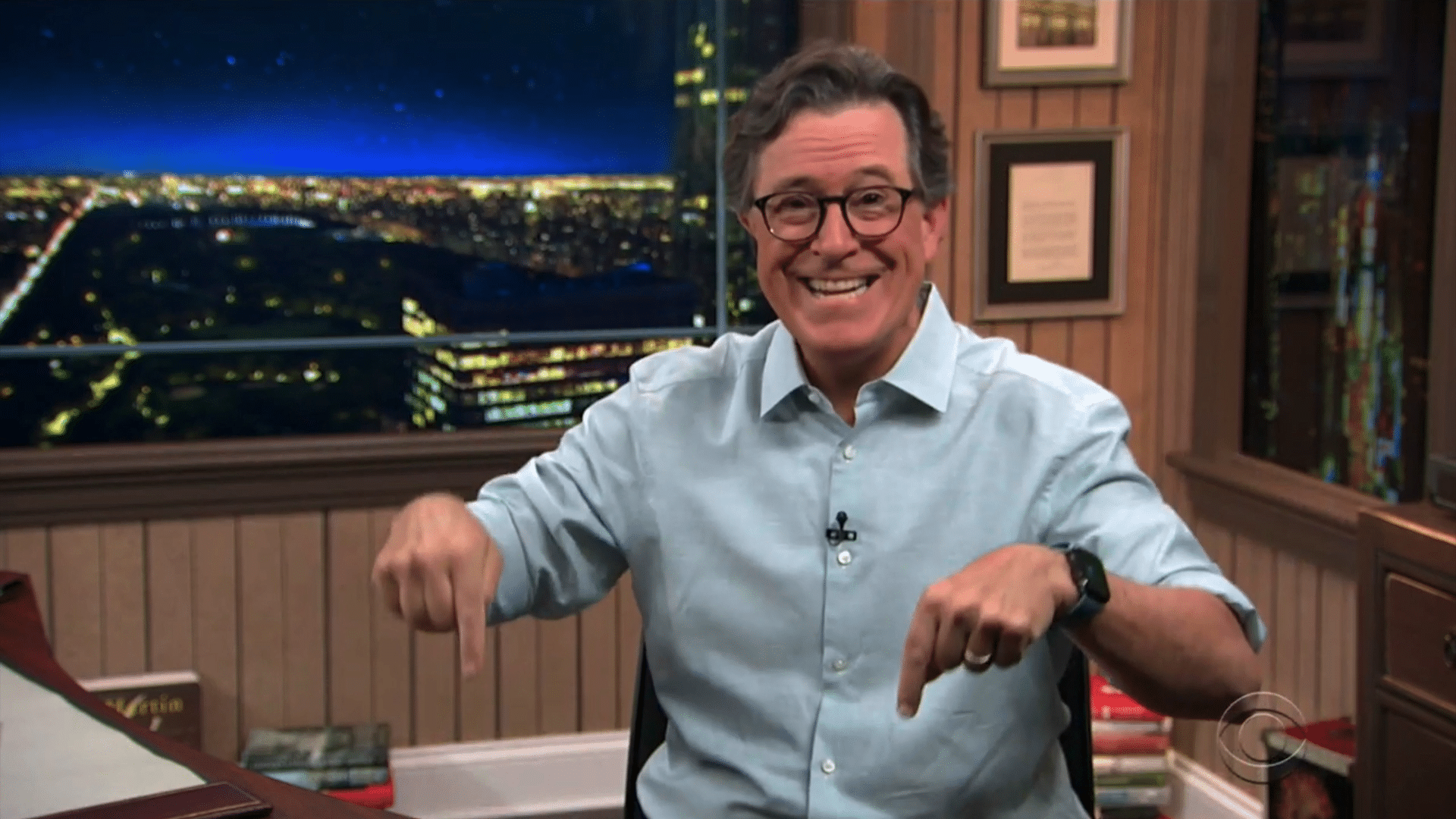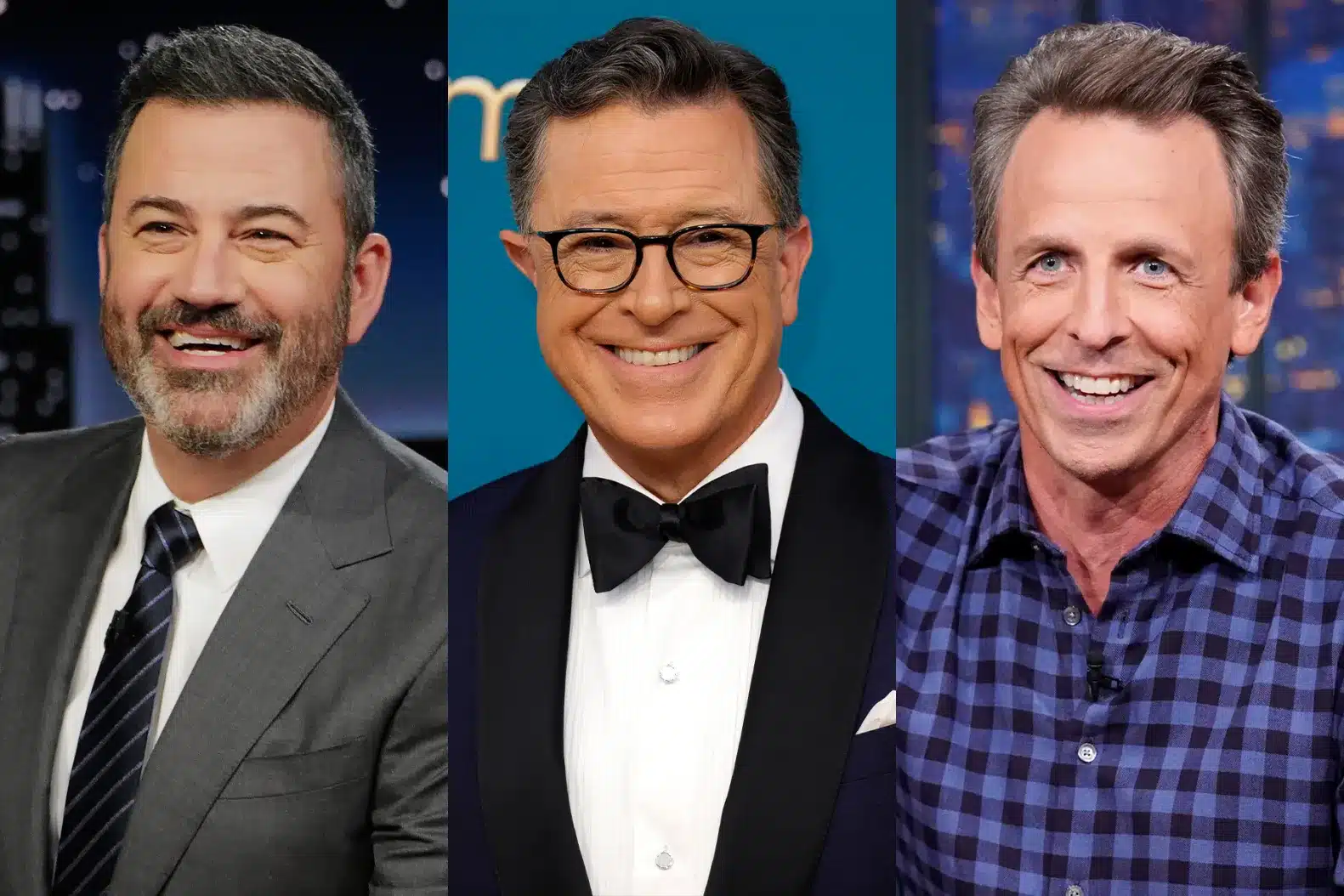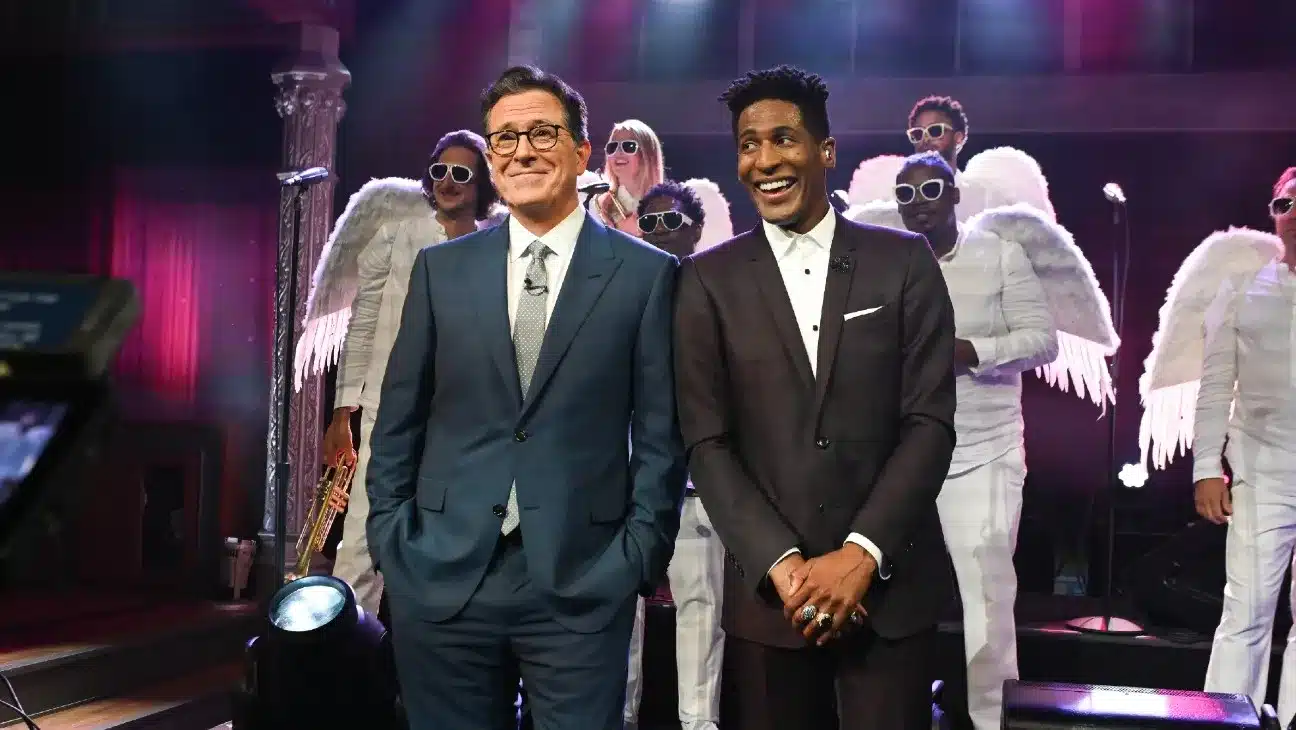New York – July 2025.
For over a decade, The Late Show with Stephen Colbert has been a cornerstone of American late-night television, broadcasting live from the iconic Ed Sullivan Theater in New York. Colbert, who first rose to prominence with The Colbert Report on Comedy Central, took over David Letterman’s chair in 2015 and became one of the most influential voices in political satire.

Competing nightly against Jimmy Fallon (The Tonight Show, NBC), Jimmy Kimmel (Jimmy Kimmel Live!, ABC), and Seth Meyers (Late Night, NBC)—with John Oliver’s Last Week Tonight on HBO redefining long-form satire—Colbert stood as a sharp and fearless commentator.
That much is fact. But what followed took everyone by surprise…
The Spark That Shook CBS
According to unconfirmed “insider sources,” CBS abruptly canceled The Late Show with Stephen Colbert just days after the host delivered a biting monologue about a $16 million corporate deal. The official CBS statement cited “creative differences” and “a new direction for late-night programming,” but to fans and fellow comedians, the move felt like a cultural earthquake.
Within hours, the hashtag #StandWithColbert dominated Twitter/X worldwide. Many compared the decision to “an attempt to strangle creative freedom on American television.”
Late-Night Rivals Unite
Instead of offering polite statements, Colbert’s longtime rivals did something unprecedented: they united.
Jimmy Fallon opened his show with a rare serious tone: “This isn’t just about Stephen—it’s about all of us.”
Jimmy Kimmel cut short his vacation to return to the studio: “Colbert spoke the truth, and now he’s paying the price. That can’t stand.”

Seth Meyers announced he would join a special broadcast instead of his usual monologue.
John Oliver declared bluntly: “If someone like Stephen can be taken down for satirizing power, then none of us are safe.”
Monday Night Showdown
Reports now suggest that this Monday, Fallon, Kimmel, Meyers, and Oliver will take the stage together—broadcasting from the Ed Sullivan Theater itself, where Colbert built his legacy.
The event is described as “unscripted, uncensored, and unfiltered.”
Critics are already calling it “The Late-Night Summit”, a collective uprising that could rewrite the history of American television.
Behind CBS Walls
While fans rally around Colbert, CBS insiders describe chaos within the network. Some executives argue that Colbert’s outspoken commentary was an asset. Others saw him as a liability in an increasingly sensitive advertising climate.
Rumors suggest that several major sponsors are reconsidering their deals, fearful of being associated with what many call an “attack on free expression.”
Comedy at a Crossroads

Colbert himself has remained mostly silent, save for one cryptic post: “See you soon. Truth doesn’t retire.”
Cultural critics argue that if the “Monday Showdown” goes ahead, it could mark a turning point—from a cutthroat ratings war to a new era of solidarity against corporate control.
“Late-night has always been a place to say what others can’t,” comedy historian Linda Perez noted. “If Colbert was really silenced for speaking truth, then this united front could be the beginning of a new chapter—where comedy is not just entertainment, but a defense of free speech itself.”
The Bottom Line
Fact: Stephen Colbert remains one of the most significant late-night hosts, and the Ed Sullivan Theater remains an enduring cultural landmark.
Fiction: CBS canceling the show, and a historic “showdown” with his rivals.
But when fact and fiction blur, the message is clear: audiences crave comedy that isn’t tamed, trimmed, or silenced—comedy that dares to say what needs to be said.